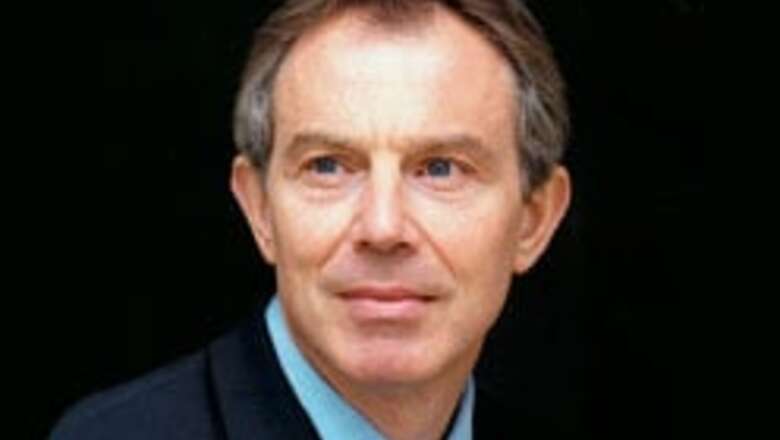
views
Baghdad: British Prime Minister Tony Blair met Iraq's new premier in Baghdad on Monday and said Iraq was at a "new beginning" with the inauguration of a multi-party government.
But Blair admitted that the return to democracy since the 2003 invasion had been "longer and harder" than he had hoped.
"It's been longer and hard than any of us would have wanted it to be but this is a new beginning," Blair told a joint news conference with Iraqi Prime Minister Nuri al-Maliki in the fortified Green Zone.
Blair flew into Baghdad on Monday to lend his support to the new Iraqi leadership as it began the task of trying to restore security and stem a tide of violence.
As Blair flew into Baghdad a car bomb exploded in a busy market in southeast Baghdad, killing at least three people, emergency police said.
At least 17 people were killed by three separate bombs in the Iraqi capital on Sunday, a day after the formation of the national unity government that pledged to combat such violence.
Blair refused Monday to set a timetable for the withdrawal of British troops and said their return home was governed by conditions on the ground.
He said a timetable would be dependent on the security situation and as Iraqi security forces slowly take over from international troops. Al-Maliki said that local army and police forces could slowly start taking control of some provinces as early as June.
"The important thing is that for the first time we have a government of national unity that crosses all boundaries and divides, that is there for a four year term and that it's directly elected by the votes of millions of Iraqi people," Blair said at the news conference with al-Maliki, who took office Saturday.
"There is now no vestige of excuse for anyone to carry on with terrorism or bloodshed," Blair added. "If the worry of people is that they may be excluded from the political process, we now have Sunnis, Shiites and Kurds in the leadership.
"If the worry of people is the presence of the multinational forces, it is the violence that keeps us here. It is the peace that allows us to go," Blair added.
A spokeswoman for the British Embassy in Baghdad would not comment on whether Blair would visit British troops in Basra, where an upsurge of violence in recent weeks has left at least seven British troops dead.
A senior British official traveling with Blair told the UK's Press Association the withdrawal of the present multi-national force should be accomplished within four years, with a handover to civilian control in several provinces during the summer.
He stressed that was not a timetable for troop withdrawal, and was not necessarily heralding the swift repatriation of large numbers of British troops.
The senior British official told PA he hoped that at least one of the four of Iraq's 18 provinces currently controlled by UK forces would be able to transfer to civilian control soon.
He said: "The UK has four provinces. I would certainly hope that at least one of our provinces would be able to transfer during the course of the summer."
That would almost certainly be al Muthana or Maysan, the two most stable of the provinces - the others being Basra and Dhi Kar, PA said.
But the official repeatedly made clear that handing over to civilian control would not lead to an immediate repatriation of British troops this summer.
Blair was also due to meet Iraqi president Jalal Talibani and members of the newly sworn-in Iraqi cabinet today, as well as the US Ambassador to Iraq and the senior UK commander in the country, General Sir Rob Fry.
Blair, said officials, wanted to offer technical help in setting up the fledgling administration and his visit also follows a strong message of support for Premier Maliki from US President George W Bush.
Blair, the first world leader to visit Iraq since its new government was inaugurated Saturday, has long maintained that British troops would remain here for as long as they are needed.
Britain has about 8,000 service members in Iraq, compared with the US's 132,000-strong military contingent.
Like Bush, Blair has seen his public support fall at home because of opposition to the Iraq war.




















Comments
0 comment